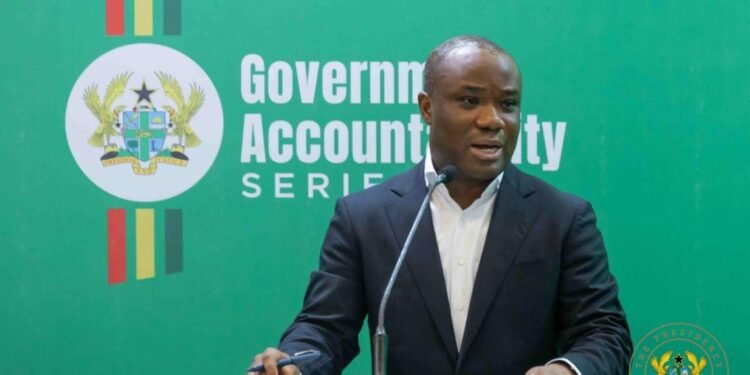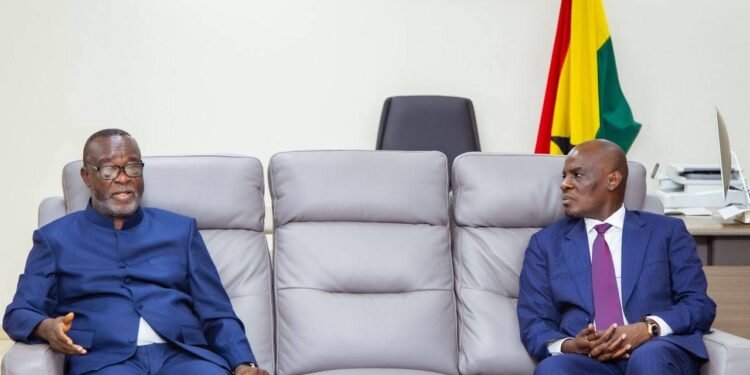Strategic Mobilization Ghana Limited (SML) finds itself at the center of an accountability debate following explosive revelations by investigative journalist Manasseh Azure Awuni.
Since Awuni’s exposé on the SML scandal, heated debates have erupted over whether protecting a Ghanaian-owned company should override the need for transparency when questionable deals threaten state resources.
Awuni expressed frustration that defenders of SML consistently argue the firm is wholly Ghanaian-owned and, therefore, deserves protection from scrutiny.
However, he challenged that reasoning, pointing out that ownership should not exempt any business from accountability if its activities cause financial harm to the state.
According to Awuni, defenders are missing the core issue by focusing on nationality rather than legality and ethics.
“But if a Ghanaian business is involved in the dubious deals that cause the state to lose money, should we ignore that? Interestingly, SML and its defenders claim that the accountability the company is subjected to is sponsored by its detractors, criminal elements who are exposed by SML’s operations.”
Manasseh Azure Awuni
Awuni observed that the company and its allies have tried to shift the narrative by accusing critics of having ulterior motives.
However, Awuni firmly dismissed these claims, providing detailed insights into the sector’s true operations.
“For the record, the oil marketing companies, bulk oil distributors, and owners of depots are not affected by SML’s operations. Since SML started operations, it has never flagged a single oil company for wrongdoing. SML admitted this on record.”
Manasseh Azure Awuni
He pointed out that despite persistent problems in the petroleum sector—including diversion, dilution, under-declaration, and under-reporting— the company has not actively addressed any of these anomalies.

Awuni noted that some oil marketing companies had previously engaged in lifting petroleum products without paying the necessary taxes and margins.
However, interventions by the National Petroleum Authority’s Enterprise Relational Database Management System (ERDMS) have helped curb such practices, along with oversight from other regulatory bodies.
According to Awuni, these systems are currently being monitored by different entities, and not the company. He emphasized that “SML DOES NOT CHECK ANY OF THESE. Different companies are checking these anomalies.”
In the course of his investigation, Awuni confronted the company with evidence challenging the company’s earlier claims that it was addressing these anomalies.
Faced with the facts, SML’s managing director conceded that the initial assertions were false and subsequently removed the claims from the company’s website.
“So, on what basis will any oil cartel be threatened by SML? SML’s measurements are not even used by the GRA because the existing metres at the loading gantries take more accurate readings than the SML metres. SML’s engineers admitted this on camera.”
Manasseh Azure Awuni
Industry Urged To Speak Out On SML Issues
At the heart of the controversy is the reputational risk facing the larger oil industry, including Oil Marketing Companies (OMCs), Bulk Oil Distributors (BDCs), and depot owners.
Manasseh Awuni argued that by remaining silent, legitimate businesses risk being wrongly labeled as corrupt or criminal simply because they oppose the narrative being pushed by SML and its defenders.
He urged industry stakeholders not to tolerate unfounded accusations out of fear of victimization.

“Those who want SML protected because it is a Ghanaian business are falsely maligning Ghanaian businesses. The OMCs, BDCs, and sector players must not remain silent. Don’t suffer false accusations of criminality because you fear being victimised.”
Manasseh Azure Awuni
Awuni also warned that the portrayal of these businesses as criminal enterprises paints an unfair picture that damages their hard-earned reputations.
“They create the impression that you are the thieves SML came to catch. Yet, SML has said in my documentary that it does not engage in checking anomalies. Speak up. You have a reputation to protect.”
Manasseh Azure Awuni
As the debate continues to rage, many observers argue that the focus should remain on accountability and transparency, rather than on the company’s ownership or the political implications of the scandal.
The underlying question remains whether state resources are being safeguarded effectively and whether companies operating within Ghana’s oil and gas sector are being held to the highest standards of integrity.
The unfolding situation has become a test of Ghana’s commitment to transparency and good governance.

While protecting homegrown enterprises is important for national development, critics insist that such protection must never come at the expense of ethical conduct and public interest.
The SML controversy, as highlighted by Manasseh Azure Awuni, underscores a broader national dilemma: striking the delicate balance between supporting local businesses and upholding strict accountability measures that ensure the nation’s wealth is not drained through questionable deals.
As the public discourse intensifies, all eyes remain on how regulatory bodies, industry players, and government officials will respond to these grave concerns.
For many, this could serve as a defining moment for Ghana’s future approach to corporate governance, transparency, and the rule of law.
READ ALSO: MTN Ghana Powers Market Momentum as GSE Turnover Skyrockets 149%





















